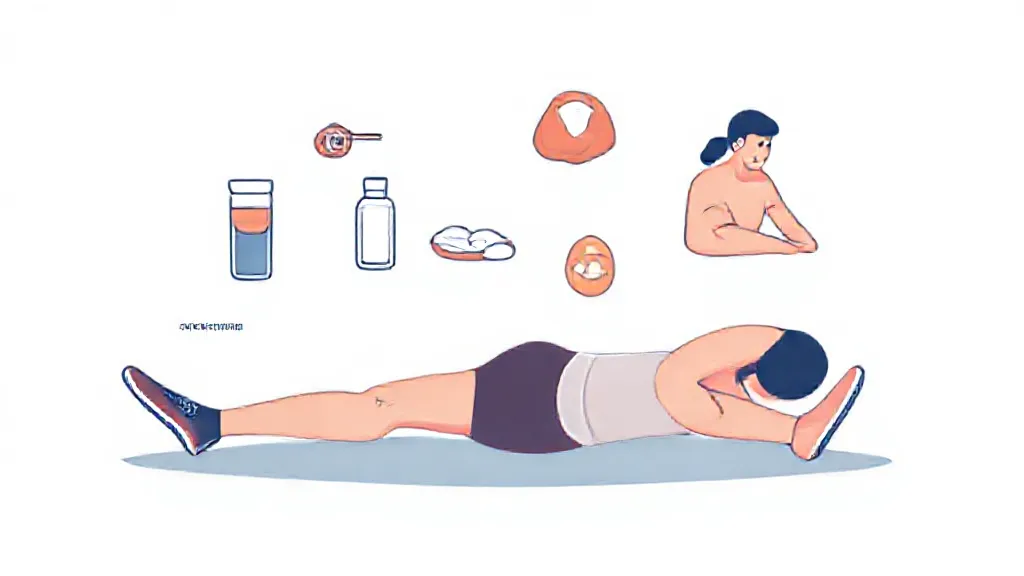Recovery is a crucial aspect of athletic performance, as it allows the body to repair and rejuvenate after the physical demands of a game. Understanding the best recovery techniques can significantly impact an athlete's performance in subsequent competitions. This article explores various effective recovery strategies that athletes can implement after a game, ensuring they remain in peak condition.
Hydration: The Foundation of Recovery
One of the most critical components of recovery is proper hydration. After intense physical activity, athletes lose significant amounts of fluids and electrolytes through sweat. Replenishing these lost fluids is essential to prevent dehydration, which can lead to fatigue, muscle cramps, and impaired performance.
Athletes should aim to drink water and electrolyte-rich beverages immediately after a game. Research indicates that consuming fluids within the first 30 minutes post-exercise can optimize recovery and enhance performance in future activities.
Nutrition: Fueling Recovery
Post-game nutrition plays a vital role in recovery.
Consuming a balanced meal rich in carbohydrates and proteins within two hours after a game helps replenish glycogen stores and repair muscle tissues. Carbohydrates provide the energy needed for recovery, while proteins supply the amino acids necessary for muscle repair. Foods such as lean meats, fish, whole grains, and fruits should be prioritized.
Studies suggest that a 3:1 ratio of carbohydrates to protein is ideal for post-exercise recovery.
Active Recovery: Gentle Movement
Active recovery involves low-intensity activities that promote blood flow and help remove metabolic waste from the muscles. Activities such as walking, cycling, or light swimming can aid in recovery without placing additional stress on the body.
Engaging in active recovery has been shown to reduce muscle soreness and improve overall recovery time. Athletes can incorporate 20 to 30 minutes of light activity after a game to facilitate this process.
Stretching and Flexibility Exercises
Incorporating stretching and flexibility exercises post-game can enhance recovery by improving range of motion and reducing muscle stiffness.
Static stretching, where muscles are gently stretched and held for a period, can be particularly beneficial. Research shows that stretching helps to maintain flexibility and prevent injuries, which is crucial for athletes who engage in repetitive movements during games.
Cold Therapy: Reducing Inflammation
Cold therapy, or cryotherapy, is a popular recovery technique among athletes.
Applying ice packs or taking cold baths after a game can help reduce inflammation and muscle soreness. Cold exposure constricts blood vessels, which can lessen swelling and numb sharp pain. Many athletes find that a 10 to 15-minute session of cold therapy post-game can significantly enhance their recovery experience.
Compression Garments: Supporting Muscle Recovery
Wearing compression garments post-game is another effective recovery technique. These garments apply pressure to the muscles, improving blood circulation and reducing muscle soreness. Studies indicate that athletes who use compression garments report lower levels of muscle soreness and fatigue after intense exercise.
Compression can be particularly beneficial for athletes involved in high-impact sports.
Sleep: The Ultimate Recovery Tool
Sleep is often overlooked as a recovery technique, yet it is one of the most important factors in athletic recovery. During sleep, the body undergoes various restorative processes, including muscle repair and hormone regulation.
Athletes should aim for 7 to 9 hours of quality sleep each night, especially after intense competition. Research highlights that inadequate sleep can lead to decreased performance, increased injury risk, and longer recovery times.
Mental Recovery: The Psychological Aspect
Finally, mental recovery is an essential component of overall recovery strategies.
Athletes often face psychological stress after games, whether from winning or losing. Engaging in relaxation techniques, such as meditation or visualization, can help athletes mentally recover and prepare for future competitions. Studies suggest that mental recovery techniques can improve focus, reduce anxiety, and enhance performance in subsequent games.
In conclusion, implementing effective recovery techniques after a game is vital for athletes aiming to maintain peak performance. By focusing on hydration, nutrition, active recovery, stretching, cold therapy, compression garments, sleep, and mental recovery, athletes can optimize their recovery process and improve their overall performance in future competitions. Understanding and applying these strategies can lead to sustained athletic success and longevity in sports.
